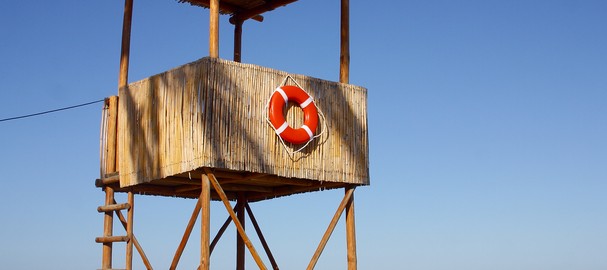The Prophet (S) said:
“Whenever Allah wills good for a person, He subjects him to adversity.” (Bukhari)
“When Allah wills good for a servant of His, He expedites his punishment in this life; and when He wills retribution for a servant of His, He holds his sins for Him to judge him by them on the Day of Resurrection.” (Tirmidhi)
“Indeed amazing are the affairs of a believer! They are all for his benefit; If he is granted ease of living he is thankful; and this is best for him. And if he is afflicted with a hardship, he perseveres; and this is best or him.” (Muslim)
“An ailment is intensified for the righteous. Whenever a believer is afflicted by a hardship, whether it is a thorn or more, a sin is taken off from him because of it, and he is elevated by one rank (in Jannah).” (Ahmad)
“A muslim is not afflicted by hardship, sickness, sadness, worry, harm, or depression – even if pricked by a thorn, but Allah expiates his sins because of that. ” (Bukhari and Muslim)
“The most in their suffering among the people are the prophets, then the best, then the (next) best. One is afflicted in accordance with his faith. If his faith is firm, his affliction is hard, and if his faith is weak, his affliction is light. Indeed, one would be so much subjected to adversity until he walks among the people without any sins.” (Ahmad and At-Tirmidhi)
“The amount of reward is in accordance with the amount of suffering. When Allah loves some people, He tries them (with affliction). He who then is content (with Allah’s decree) has achieved the acceptance (of Allah), and he who is dissatisfied (with Allah’s decree) will attain the anger (of Allah).” (At-Tirmidhi)
“A Muslim is not afflicted by hardship, sickness, sadness, worry, harm, or depression—even if pricked by a thorn—but Allah expiates his sins because of that” (Al-Bukhari and Muslim)
“Hardships continue to befall a believing man and woman’s body, family, and property, until they meet Allah (SWT) burdened with no sins.” (Tirmidhi)]
Whenever the Prophet (S) was grieved by something, he used to pray.
—Hudhayfah
(Read on pg 58, Muhammed Salih Al-Munajjid, Dealing with Worries & Stress. Daar us-Sunnah Publishers. Birmingham:2003.)
It could be that our Lord tests the slave with misfortune in order to save him from destruction; in that case, his misfortune would be the greatest of blessings upon him.
—Ishaq al-‘Abid
(Read on pg 48-49, Sameh Strauch, The Silver Lining. International Islamic Publishing House. Riyadh:2004.)
The goodness in which there is no evil is: gratitude (to Allah) in times of well-being, and patience in times of misfortune. Yet how many of those who are blessed are not thankful, and how many of those who are tried are not patient?
—Al-Ḥasan al-Baṣrī [d 110H/728CE]
(Read on pg 47, Sameh Strauch, The Silver Lining. International Islamic Publishing House. Riyadh:2004.)




